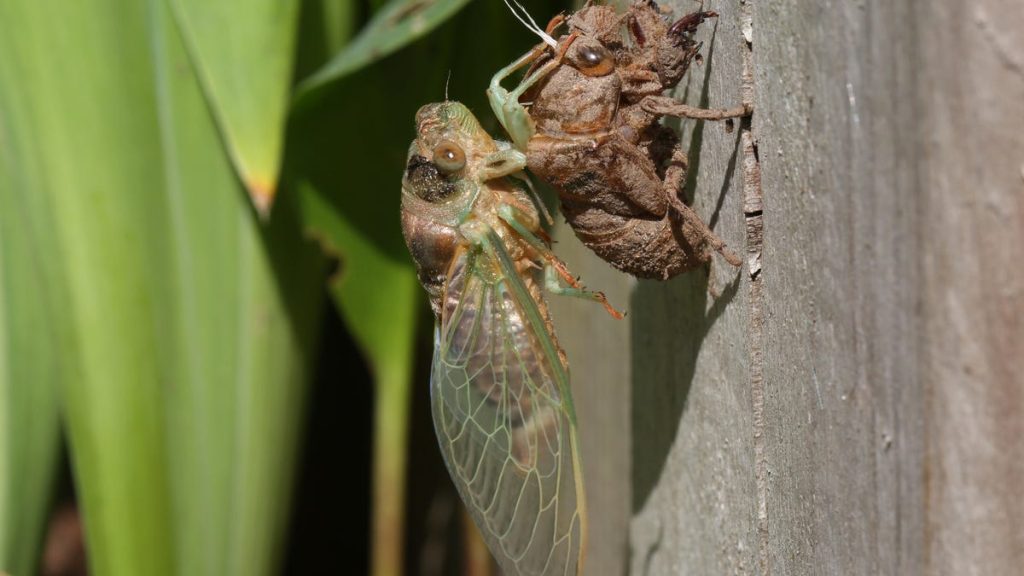My dog has a unique and strange habit of eating cicadas every summer, resulting in her throwing them up in my living room. This behavior is not uncommon among dogs, especially with the upcoming emergence of two cicada broods — Brood XIX and Brood XIII. As a responsible pet owner, it is important to understand the potential risks of allowing your dog to consume cicadas. While cicadas themselves are not poisonous or venomous, they can cause gastrointestinal issues in dogs if consumed in large quantities. It is recommended to monitor your pet for any abnormal behavior and consult a veterinarian if necessary.
The double emergence of Brood XIX and Brood XIII this year is expected to be one of the largest cicada emergences seen in recent years in the United States. These broods will cover 17 states, bringing a significant presence of cicadas during the spring and early summer months. While cicadas are not harmful to dogs in terms of venom or poison, excessive consumption of these insects can lead to gastrointestinal problems, including potential blockages. It is important to keep a close eye on your dog if they have a habit of eating cicadas and seek veterinary advice if any concerning symptoms arise.
The Great Southern Brood (Brood XIX) emerges every 13 years, while the Northern Illinois Brood (Brood XIII) emerges on a 17-year cycle. With both broods emerging simultaneously this year, pet owners in affected states should be vigilant about their dogs’ interactions with cicadas. Symptoms to watch for include depression, excessive salivation, and persistent vomiting, which may indicate a need for veterinary attention. While some dogs may experience minor stomach upset after eating cicadas, it is crucial to assess any concerning signs and seek professional advice when needed.
Despite the annoyance and loud presence of cicadas during their emergence, they pose no direct threat to dogs in terms of toxicity or injury. However, it is still important to prevent excessive consumption of cicadas by your pets, as it can lead to digestive issues and potential blockages. Monitoring your dog’s behavior and seeking veterinary advice if any concerning symptoms arise is crucial for their health and well-being. By staying informed and proactive, pet owners can ensure that their furry companions stay safe during the cicada emergence season.
If your dog has a habit of eating cicadas, it is essential to be aware of the potential risks and monitor their behavior closely during the emergence of Brood XIX and Brood XIII. While cicadas themselves are not harmful, excessive consumption can lead to gastrointestinal problems that may require veterinary attention. By observing your pet for any abnormal symptoms and seeking professional advice when needed, you can ensure that your dog stays healthy and safe during this unique natural event. Stay informed, stay vigilant, and prioritize your pet’s well-being during the cicada season.


